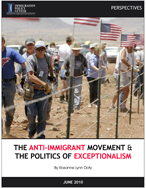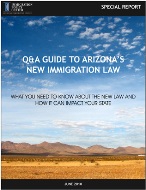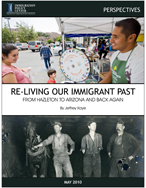Data on Federal Court Prosecutions Reveal Non-Violent Immigration Prosecutions Up, Organized Crime, Drugs and Weapons Charges Down
Released on Thu, May 20, 2010
Washington D.C. - The Mexican President's visit to the United States allowed both he and President Obama to address the important issues of immigration, border control and crime. Both Presidents made the important point that we address and not conflate these serious issues. This approach stands in stark contrast to the drafters of Arizona law SB1070 and those members of Congress, including Senators Kyl and McCain, who continue to equate dangerous criminals and migrant workers. These legislators share either a misguided understanding of who is really perpetrating violence at the border or a willingness to do anything to win an election.
The horrific violence which currently afflicts our southern neighbor is a complex problem that requires a multi-faceted solution. This violence is driven by the flow of guns, drugs and money across the borders. Yesterday, the President reaffirmed his administration's commitment "to stem the southbound flow of American guns and money" and to develop "new approaches to reducing the demand for drugs in our country," pledging to keep up law-enforcement pressure on the criminal gangs that "traffic in drugs, guns, and people." In practice, however, the Justice Department seems to have given in to the political rhetoric behind laws like SB1070.
Obama's pledge to focus on these serious criminal enterprises should mean that law enforcement resources are also focused there, rather than on rounding up non-criminal border crossers. However, that's simply not the case according to recent reports that show Department of Justice prosecutions of drug and weapons violations are down while low level immigration violators are being prosecuted at record levels.Read more...
View Release







